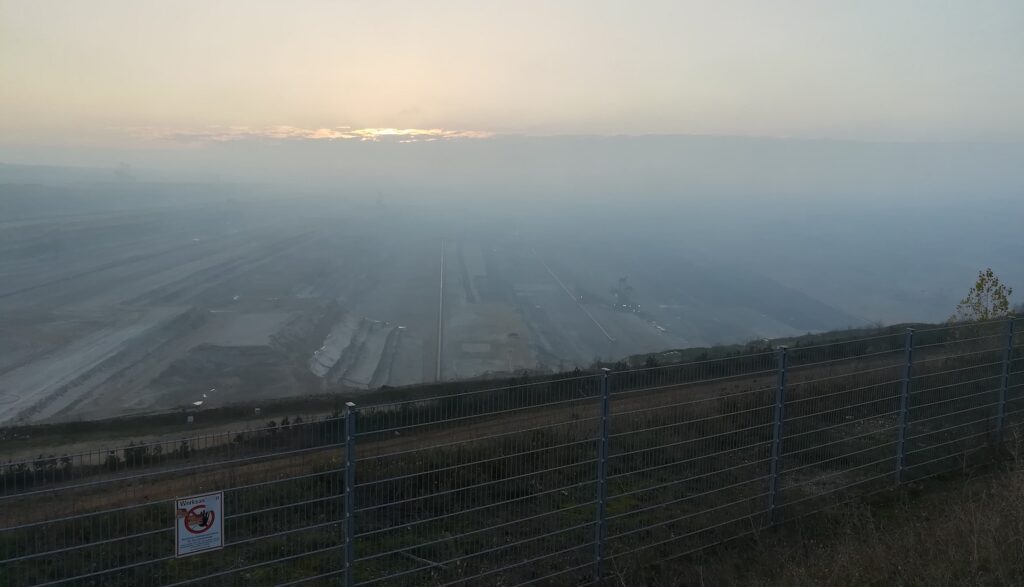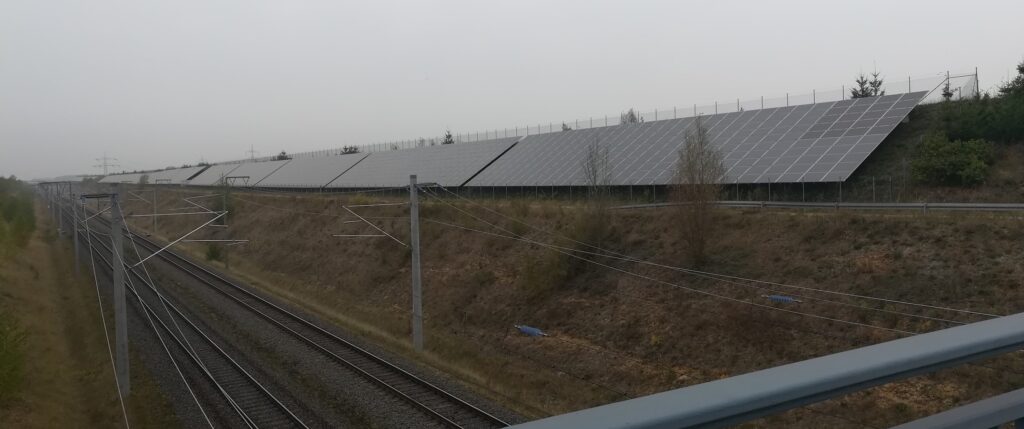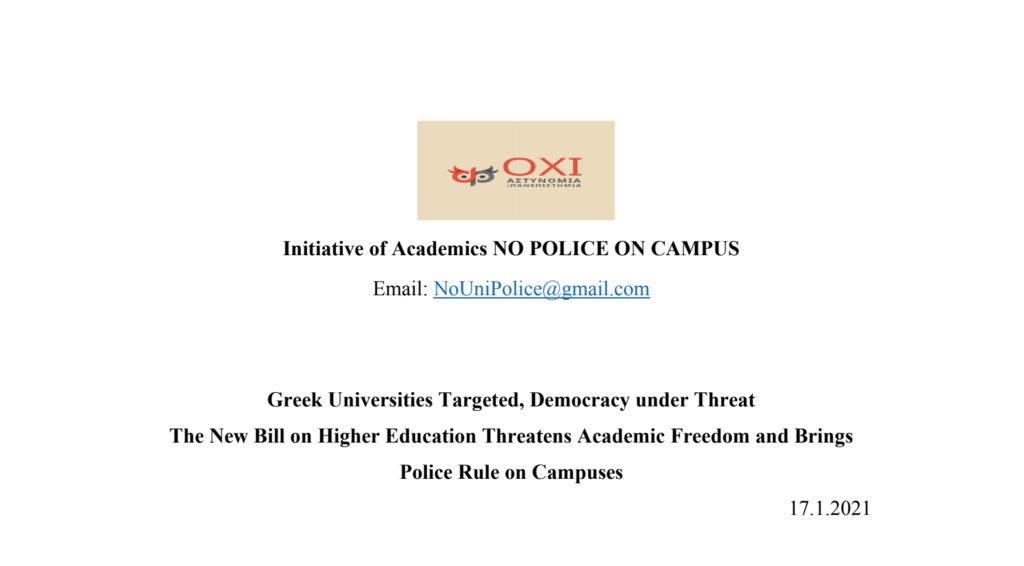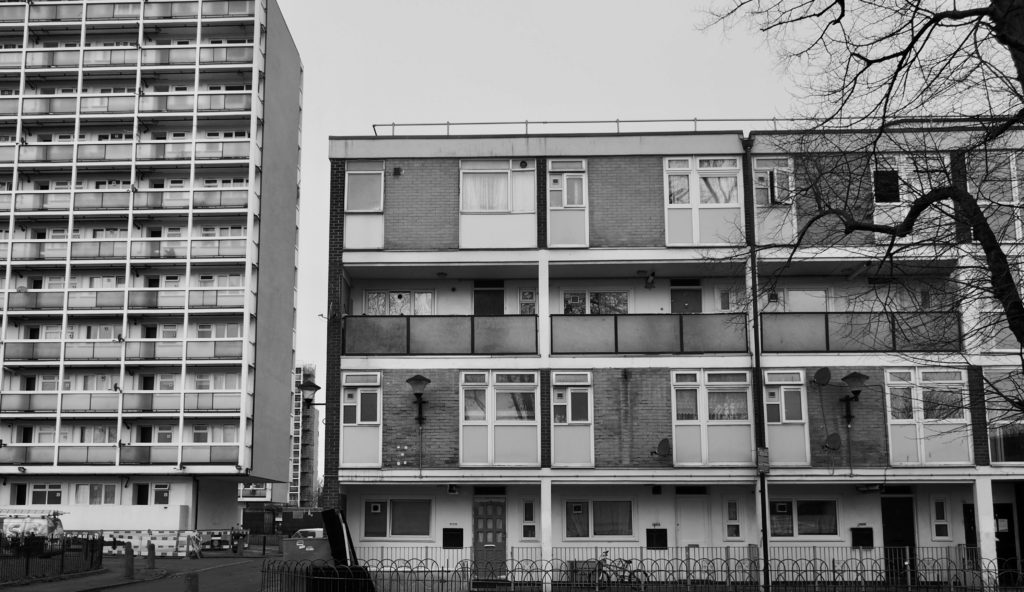‘Blue lives matter,’ says the mantra of police fragility. The mythology about defenseless officers being hunted and killed by criminals is indeed a powerful one, mobilized by right-wing politicians endorsed by police unions in countries such as Brazil and the United States. In the case of Brazil, a global reference in police terror, the narrative of police victimization helped president Jair Bolsonaro to galvanize popular support around the fictional image of patriotic officers (or soldiers like himself), ready to put their lives on the line to protect citizens and save the country.
Certainly, police officers are killed in Brazil at a rate that supersedes any other country in the hemisphere. According to the Brazilian Forum of Public Safety, 343 officers were killed in 2018 alone, 75% of them off-duty (FBS 2019). Although the numbers are extremely high when compared with the United States, for instance, where 181 law enforcement agents were killed in 2019 (NLEOMF 2020), this is a profession that, contrary to popular belief, has very low lethality rates worldwide. Yet, even in Brazil, with astonishing levels of officers killed on and off-duty, homicide is not the leading cause of police death. In what seems to be a trend in Brazil and the US, the leading cause of officers’ death is suicide (Bureau of Labor Statistics 2018; Exame 2019; see also Miranda and Guimarães 2016).
While assault and killings of law enforcement officers do occur, this real risk is part and parcel of the work they perform. In fact, it is common-sensical that their work grants them special protection not enjoyed by any other civilian occupation. To raise a hand against a police officer is not only a serious felony offense, but is also quite often a lethal one. In Brazil, when an officer is killed, dozens of poor and predominantly black youths are killed in revenge raids such as the infamous 2006 massacre, when at least 600 youth were killed within the span of one week in response to gangs’ lethal attacks against police stations (Mães de Maio 2018). Police even deploy assassinations in order to pressure politicians to grant them better labor conditions.
Indeed, spreading terror has been an ‘efficient’ police strategy to gain political leverage. For instance, in February 2020, days before carnival, the Military Police of Ceará went on strike. Although the direct involvement of striking officers in the slaughter is the object of an ongoing investigation, there were several denunciations of police-linked death squads and hooded men in police patrols terrorizing the population. Coincidently or not, and repeating a pattern seen in other Brazilian contexts (see De Souza, 2016), at least two hundred individuals were killed within the span of one week (Jucá 2020; Adorno 2020). To no avail, the leftist governor Camilo Santana denounced these uses of terror as a tactic to bring the government to its knees. Widespread denunciations of human rights violations, from torture to assassinations, are consistently met with impunity in a country where at least 6,200 individuals were killed by the police in 2018 (17 deaths each day!), of which 99% were young male, favela residents and 75% were blacks (FBSP 2019).
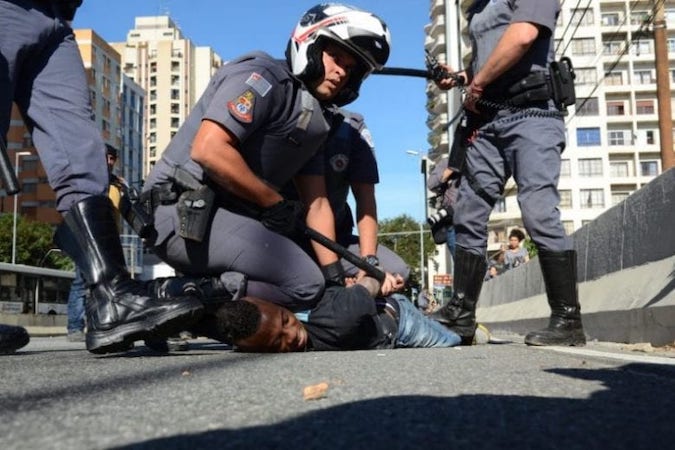
In this following, I focus not so much on the paradigmatic victims of police terror in societies of the African Diaspora such as Brazil and the United States, but rather on the critical role urban ethnographers can play in demystifying the ‘war on police’ and in advancing an insurgent movement pushing toward police abolition in the contemporary world. Brazil is the departure point of analysis for obvious reasons. As the country with the highest rates of civilians killed by the police, it has, within the last few decades, seen a proliferation of socio-anthropological studies on police violence and police culture. Not only have anthropologists dedicated increasing attention to the challenges and possibilities of democratic policing, but officers themselves have become ethnographers – or at least relied on some of its techniques – in their attempts to provide ‘privileged’ accounts of police praxis (e.g., França 2019; Muniz and Silva 2010; Storani 2008).
This article should be understood neither as a literature review of the burgeoning field of police studies in Brazil (for an overview see, Muniz et., all, 2018) nor an overview of global anthropology of policing. Instead, I call attention to new directions in the study of policing as a colonial regime of control that exists in urban contexts in Brazil and the USA, but is hardly unique to those societies. Crucially, as a global project, the practice of anthropology – and police fieldwork in particular (Steinberg 2020) – cannot be dissociated from the geopolitics of empire and global antiblackness. Enduring global colonialism is configured and continuously reinforced by Europe/US-led regimes of security and knowledge production. And yet, racial apartheid enforced by police terror –homeland security? — blurs geo-ontological boundaries between global north and global south and reasserts the afterlife of colonialism (Susser 2020; Nonini 2020; Beaman, 2020).
How should anthropologists objectively treat police innocence and victimhood narratives without participating in this ongoing coloniality? If, as Anna Souhami forcefully argues, ‘the dynamics of police culture [ethnographers] so powerfully criticis[e] are reflected in the construction of the ethnographic process’ (2019: 207), how should we ethically write about police victimization without (even if involuntarily) endorsing the trope of cops’ fragility? What does the narrative of victimization engender? Finally, what should be the place of anthropology of policing in the urgent call of black activists and black studies to defend the dead? While studying the police (and any mainstream institution) does not necessarily lead to uncritical alignment to power, the antiblack animus of policing makes it extraordinarily challenging and politically compromising for anthropologists to work with the police in the name of ethnographic complexity and simultaneously engage with social movement’s critique of policing-as-antiblackness (Hale, personal communication). That is to say, the anthropology of policing, even when highly critical of policing structure, seems to underscore a liberal reform paradigm that goes against what the paradigmatic victims of police terror demand: defunding, dismantling and abolishing the police state.
The Myth of Police Fragility
There is a scene in Melina Matsoukas and Lena Waithe’s 2019 movie, Queen and Slim, that is worth recuperating here. The young couple is going on their first date when a white cop pulls them over. The minor traffic violation ends with Slim (Daniel Kaluuya) taking the cop’s gun and shooting him dead in self-defense when the officer fires his gun against Queen (Jodie Tuner). Slim wants to turn himself in, but Queen (who is a lawyer) reminds him that their blackness has already sealed their destiny. The ‘cop-killers’ go on the run through the deep South, hoping to reach Cuba. As the video of the killing goes viral, Queen and Slim’s story mobilizes other African Americans and images of Black Lives Matter protests are merged with their fugitive endeavor. The scene that strikes me features Junior, a black boy in the foreground leading a demonstration. With fists in the air he shouts, ‘Let them go!’ When an officer tries to stop him, he pulls the officer’s gun and shoots the officer dead.
One may speculate: What led him to such an expected act of violence? Perhaps the painful consciousness of his blackness? Perhaps the limited options available, within the context of ‘fugitive justice,” to stop the “grinding machine of human flesh” policing represents? The film and the scene in particular aroused heated debate on the nature and scope of Black resistance against police violence in the Black Lives Matter era. Lena Waithe has called the movie ‘a meditation on black life in America’ (King 2019). However, where the filmmakers gave cinematic representation to an all too familiar “state of captivity” (Wilderson 2018:58), some received the movie as a ‘war on cops’ while others blamed it for ‘going too far left in its implications in that black people condone, protect and are inspired by reciprocating violence against police as a result of their experiences with law enforcement’ (Vaughn 2019).
The “war-on-cops” rhetoric and its attending practices in the ‘Blue Lives Matter’ movement in the United States and its parallel (albeit diffuse) pro-cops movement in Brazil can be read as what legal scholar Frank Rudy Cooper calls “the myth of cop fragility”. Hecontends that such mythology draws a false equivalence between ‘blue lives’ and ‘black lives’ by ‘reposition[ing] police officers, and whites in general, as the new victims’ of racism (Cooper 2020: 654). In that sense, ‘white backlash better explains Blue Lives Matter’s self-defense perspective than does the vulnerability of police officers to attack’ (2020: 655).
By hijacking the meanings of the black struggle for life, the police also cannibalize the terms of the debate. This, in turn, seems to resonate in the academia’s ambivalence (unwillingness?) in dealing with the cruelty of police power. Whereas radical social movements and scholars lay bare the impossibility of freeing justice from its coloniality (e.g., Best and Hartman 2005; Segato 2007; McDowell and Fernandez 2018; Flauzina and Pires 2020), we see a proliferation of works on police reform, or, in the case of anthropology, an investment in cops as a new subject of inquiry whose violent work must be understood in relation to broad social norms and power dynamics. I have nothing against the election of cops as ethnographic subjects and indeed, such an election has been crucial to illuminate social processes that otherwise would continue to remain obscure. Though in a fragmented form, I take this very path in my own ethnographic work on police brutality in São Paulo, Brazil and Cali, Colombia.
Likewise, recent groundbreaking ethnographies of policing (I am consciously grouping scholars from distinct disciplines whose work employs ethnography as its main methodology) have shed light on the ways in which officers justify their work as habitus – ‘just doing their job’ – which reflects a socially shared belief in torture and killings as a form of ordering the chaotic social world. In racialized geographies such as the Paris’ ‘banlieues,’ Los Angeles’ ‘ghettos’ or Brazil’s ‘favelas,’ these critical ethnographies show that officers enforce sociospatial imaginaries of belonging, entitlement and justice (Fassin 2013; Denyer-Willis 2015; Roussell 2015). Officers also perform a peculiar form of order-making in contested regimes of urban governance by competing local authorities such as drug-traffickers, paramilitarism, power-brokers and so on (e.g., Salem and Bertelsen 2020; Larkins 2013; Penglase 2012; Arias 2006). Other interventions have accounted for the ways in which police negotiate their everyday encounters with institutional violence and public discredit. Officers are forcefully portrayed as political actors whose practices, emotions and subjectivities echo broader systems of morals (Pauschinger 2020; see also Jauregui 2014). Police and policing produce a mode of “sociability,” an ethos, and a political rationale of governance (Karpiak 2010; Sclofsky 2016; Muniz and Albernaz 2017). Finally, there is the call for ‘publicity, practicality and epistemic solidarity’ among anthropologists, law enforcement agencies and larger publics to respond to the disciplinary invitation for political engagement with pressing problems of corruption and violence (Mutsaers et al. 2015: 788).
These and many other works (too many to be listed in a commentary note) reflect an important anthropological contribution to demystifying this troubling institution and the subjectivity of its agents. In the last decade or so, it has become a consensus in the field – regardless of one’s theoretical perspective – that policing is much more than uniformed personnel patrolling the streets. By making ethnographically visible what policing does and produces, ethnographers have provided insightful understandings of mundane forms of order-making, statecrafts and rationales of government (see Karpiak and Garriott 2018, Martin 2018, Steinberg 2020 for an overview).
My intervention does not go against these contributions that I loosely locate within the field of ethnographies of police. My concern here is with what anthropology does and what anthropology produces when giving cops more voice and space in these critical times when cities are on fire. In their edited volume, The Anthropology of Police, editors Kevin Karpiack and Willian Garriott ask the important questions: ‘What are the ethical and political stakes of trying to humanize the police? Are there any grounds on which one could even justify an approach that took up such a project of humanization over and against one centered on cataloguing, critiquing, and decrying police-perpetuated harms?’ (2018: 6-7). The authors answer this crucial question by calling for the study of police as a way to challenge the discipline’s trend to “study up” and as an attempt to understand contemporary notions of humanness embedded in policing and security practices. To them, one cannot understand the world and what it means to be human without understanding the work of police (2018: 8).
In this sense, it is argued, the risk pays-off: when attentive to one’s own positionality, critical ethnographies of policing can shed light on important issues such as the culture of militarism, the corrosion of democracy and the normalization of gendered violence (Kraska 1996; Denyer-Willis 2016). I can relate to that. My fragmented ethnographic encounters with police officers (usually themselves from the lowest social stratum of the society they supposedly serve and protect) gave me a first-hand understanding of how officers negotiate apparently contradictory approaches of defending the killings of ‘criminals,’ enthusiastically supporting a ‘new’ human rights-oriented community police, energetically detaching themselves from the “bad cops,” and embracing a hyper-militaristic crusade to ‘save’ family and Christian values (Alves 2018).
While doing ethnography with/of police does not necessarily stand in contradiction to the ethics and promises of anthropology in solving human problems, something I have no doubt my colleagues genuinely embrace as a political project, and while we should suspend assumptions that all anthropologists must adhere to the militant/activist theoretical-methodological orientation (Harrison 1992; Hale 2008, Hale personal communication), studying the police requires one to face tough ethical questions on the troubling position of witnessing the perpetration of violence, the unintended normalization of police culture (see Souhami 2019), and the dangerous humanization of police work.
My analysis (and that of many of my colleagues), was politically aligned with activists and empathic with individuals embracing outlawed forms of resistance against police terror. Still, I was constantly asked which side I was on. For instance, a black young man, who by the time of my research in the favelas of São Paulo was making a living in what he refers as ‘the world of crime,’ unapologetically told me I was an asshole for being ‘too straight, too naïve, too afraid to die.’ In Cali, Colombia, although I was considered “not kidnappable” — as the member of a local gang laughed and joked around, perhaps demarking the difference between my physical appearance and those of other foreign researchers usually from the global north — I was awkwardly enough associated with the mestizo middle class and its regime of morality that called for state violence against black youth seen as the scapegoat of the city’s astonishing levels of violence.
Thus, my contention here is not so much to stop studying police, but rather, to disengage from a seductive analysis of power that, while compelling in scholarly terms and in-depth ethnographic description, may involuntarily give voice to unethical power structures personified by the police. Following Frank Wilderson’s assertion that police terror ‘is an ongoing tactic of human renewal…a tactic to secure humanity’s place’ (2018:48), one should ask what such an anthropological project of humanization entails. If we do not want our work to end up fueling and corroborating the skepticism over a discipline with an ugly history of complicity with oppressive power, then it is about time for an unapologetic ‘f*ck the police!’ in studies of policing.
Maroon Anthropology
In Progressive dystopia, abolition, antiblackness and schooling in San Francisco, anthropologist Savannah Shange urges anthropologists to apply ‘the tools of our trade to the pursuit of liberation, and [to enact] the practice of willful defiance in the afterlife of slavery’ (Shange 2019: 159). Abolitionist anthropology responds to scholars law-abiding investment in policing – what she calls carceral progressivism – by refusing the promises of the liberal state and liberal academia (39-42). The imperative ‘F*ck the Police!’ could be another way of engaging with Shange’s invitation to make space for freedom in our writing and our practices. The urgency of the moment asks anthropologists to work against the police, not with the police. If nothing else, the recent urban ‘riots’ in response to the lynching of black individuals in the United States and in Brazil support my call. Individuals strangulated with knee-to-neck asphyxia, skulls broken by police boots, wounded bodies calculatedly left agonizing in the streets or tied to the police patrol and dragged through the streets, rapes, disappearances and continued extortion are some of the mundane practices of police terror that should make us pause and reflect.
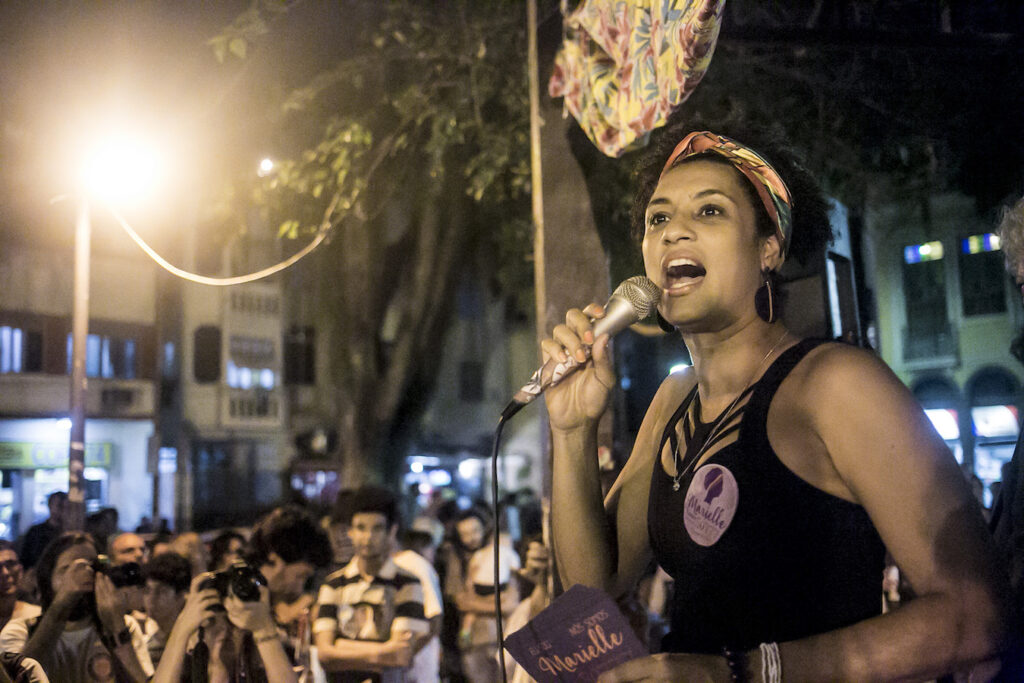
Let’s be honest, as a discipline, we have failed to side significantly with the victims of police terrorism beyond sit-in moments at conferences, open letters, creatively designed syllabi or academic journal articles such as this very one. Anthropologists seem to be too invested in the economy of respectability that grants us access to institutional power ‘to engage anthropology as a practice of abolition’ (Shange 2019: 10). Nothing can be more illustrative of such an abysmal dissonance with this call than the political lexicon we use to describe police terrorism itself – it is telling that the word terror is barely articulated in the field of anthropology of police – and people’s call to ‘burn it down’ and ‘end the f*cking world’. With one fist in the air and a rocket in the other hand, demonstrators have denounced again and again that ‘Brazil is a graveyard,’ ‘the US is a plantation,’ ‘police are the new slave-catcher.’ Cities turned into a smoking battleground, police stations stormed, patrols set on fire. What has anthropology got to offer beyond well-crafted texts, sanitized analyses of the moment and good intentions to decolonize the discipline? We lack rage!
Like police, and unlike workers in general, tenured scholars (including anthropologists) have very low risk in performing their work. Police perform what Micol Siegel forcefully calls ‘violence work’ (Siegel 2018). They are professionals that essentially deliver violence represented as a public good. Anthropologists, I would argue, are ‘violence workers’ not only in performing the enduring colonial project of othering, but also when taking a ‘reformist’, ‘neutral’ or distant stance on social movements that demand radical changes. Even worse, in giving voice to police based on a pretentious technicality of ‘just’ collecting data, anthropology ends up helping to quell that struggle (see Bedecarré 2018 for groundbreaking work on the role of white scholars in promoting vigilante justice against Black anger). That is to say, the nature of the violence performed by ethnographers of policing may differ in degree and scope from police terror but, as Hortense Spillers reminds us, “we might concede, at the very least, that sticks and bricks might break our bones, but words will most certainly kill us” (Spillers 1987: 68).
If the subfield of anthropology of police wants to be coherent to the discipline’s (incomplete) decolonizing turn, it should have no ambiguity in regarding police ‘violence’ as terror, have no doubts as to which lives are in peril in these terroristic policing practices and refuse the false promises of reforming this colonial institution. For ethnographers, refusing to performing ‘violence work’ may require disloyalty to the state – including rejecting the self-policing required by corporate academia – and instead unapologetically embrace the position of an insurgent subject whose ‘coherence [is] shaped by political literacy emanating from communities confronting crisis and conflict’ (see James and Gordon 208:371).
I am not completely sure how an insurgent anthropology of police would look (Ralph, 2020 is a powerful example of how anthropologists can use the discipline’s tools to mobilize larger audiences against police terror). A departure point for discussion, however, would be the intellectual humbleness to learn from the wretched of the earth’s refusal to legitimize, ‘humanize’ and promote the reforming of the police, not to mention the temptation to equate cop’s (real) vulnerability to violence with the (mundane) killing of civilians. Ultimately, those of us doing ethnography in collaboration with men and women in uniform ought to ask ourselves how to express empathy with and mourn blue lives – since as ethnographers we develop emotional bonds to our interlocutors even if critical of their behaviors– and still remain critical of the regime of law that necessitates and legitimizes the evisceration of black lives. How do we attend to the ethical demand for all (blue) lives’ grievability while also attentive to the ways, as some anthropologists have shown (Kurtz 2006; and Vianna et al., 2011), the state is anthropomorphized and performed by political agents? Are not cops’ lives, insofar as their identity are attached to the (state) terrorism they perform, an expression of state livingness? That is to say, blue lives are not the same as black lives because blue lives are state lives (albeit not the only ones, a peculiar performance of state sovereignty). There is no space for a theorization on the multiple ways the state comes into being as a mundane practice of domination. It is enough to say that at least in the USA and Brazil, statecraft is antiblackcraft. Indeed, the military labor performed by the police in postcolonial contexts such as Brazil and the United States is only made possible by the ‘politics of enmity’ (Mbembe 2003) that informs contemporary regimes of urban security. It is in the terrain of sovereignty, thus, that one has to situate the work of policing. As Siegel and others have shown, one of the most important realizations of state violence is the mystification of police work as civilian as opposed to military labor. The police, the myth goes, works under the register of citizenship to protect and serve civil society. Still, both police and the military are one and same. The field in which police operates is a military one, which works effectively and precisely to deploy terror in a sanitized and legitimate way (Wooten 2020; Siegel 2018; see also Kraska 2007).
This is not a peripheral point. One has only to consider the ways black people encounter officers in the streets as soldier and experience policing as terror (again, asphyxiated with the knee on the neck, dragged in the streets, dismembered and disappeared) in opposition to the contingent violence experienced by white victims of cops’ aggression (Wilderson 2018; Alves and Vargas 2017) or by cops’ vulnerability inherent to their profession. And yet, if the logic of enmity is what sustains the enduring antiblack regime of terror enforced by policing, from the point of view of its paradigmatic enemy reforming the police is absurd and praising blue lives is insane.
How might anthropologists challenge the asymmetric positionality of terrified police lives and always already terrifying black beings? When one officer dies, it is a labor accident. When an officer kills, it is part of his or her labor in performing the state. The degrees, causality and likelihood matter here. Even in societies such as Brazil, where the number of officers killed is extremely high, police lives are not as in peril as conservative pundits want us to believe. The lives of those cops eventually killed ‘in service’ are weaponized forms of life that predict the death of black enemies. Thus, police and their victims belong to two different registers, and if there is an ethical issue in relativizing any death—an approach I firmly refuse –, there is equal or even greater risk in lumping together state delinquency and retaliatory violence by its victims.
There is no equivalence between blue lives and black lives, and even if the call for equivalence is the order of the day in the liberal sensibility that ‘all lives matter,’ this is not the job of anthropology to reconcile these two positions. It is in the spirit of anthropology’s moral and political commitment to the oppressed – a commitment that while empathic with the powerless is also highly critical of the uses of violence as liberatory tool — that we should insurge against this false equivalency.
Based on her work with activists in the South African liberation movement, Nancy Scheper-Hughes asks, “what makes anthropology and anthropologists exempt from the human responsibility to take an ethical (and even a political) stand on the working out of historical events as we are privileged to witness them?” (1995:411). The author deals with this question by highlighting the complexity of not relativizing violence of the oppressed or taking a neutral distance from the cruelty of the oppressor and yet, positioning one’s fieldwork as a site of struggle. She opposes the anthropologist as a “fearless spectator” (a neutral and objective eye) and the witness (the anthropologist as a “companheira”). The later is positioned “inside human events as a responsive, reflexive, and morally committed being” and “accountable for what they see and what they fail to see, how they act and how they fail to act in critical situations” (1995: 419).
If we consider current waves of demonstrations against police terror as a historical moment that scholars committed to human liberation cannot refuse to attend, how do we respond to this call without been misunderstood as inciters of violenceagainst the police? Although an insurgent anthropology should learn from different historical and ethnographic contexts where retaliatory violence has been deployed as one legitimate tool to counteract the brutality of power (Abufarha 2009; Cobb 2014; Umoja 2013), my critique here is obviously not an argument for embracing violence against cops as the way out of the current crisis of policing. I am also not turning a blind eye to a range of political possibilities militant and activist anthropologists already embrace in favor of empowering victims of state-sanctioned violence as “negative-workers”, public intellectuals, or member of advocacy groups (e.g., Scheper-Hughes 1995; Mullings 2015). Rather, informed by a black radical tradition, I am inviting anthropologists to rebel and change the terms of engagement with the police by questioning our (and our discipline’s) loyalty to the carceral state.
Thus, f*ck the police! is not a rhetorical device, but rather an ethical imperative and moral obligations to the eviscerating lives lost by state delinquency. It is indeed an invitation to seriously engage with the desperate call from the streets for making Black Lives Matter. Attending to their call, on their terms, would require a deep scrutiny on how anthropology participate in antiblackness as a socially shared practice. It also requires us to consider how antiblackness renders legal claims for redressing police terror quite often of little account, and what resisting police terror means to those whose pained bodies resist legibility as victims. What does the anthropological project of humanizing the police mean to those ontologically placed outside Humanity? For those whose marked bodies make Queen and Slim’s subject position – as new runaway slaves – very familiar and intimate, the answer is quite straightforward. Fuck the police!
Acknowledgments: This paper has benefited from generous comments from Charlie Hale, Micol Siegel, Graham Denyer-Willis, João Vargas and Tathagatan Ravindran, as well as from engaging audiences at the University of Colorado/ IBS Speaker Series, University of London / Race Policing and the City Seminar, and the University of Massachusetts/Anthropology Colloquium. I also thank Terrance Wooten and Amanda Pinheiro for a joint-conversation on police terror during the Cities Under Fire forum at the University of California, Santa Barbara. Don Kalb, Patrick Neveling and Lillie Gordon provided invaluable editorial assistance. Errors and omissions are of course mine.
Jaime A Alves teaches Black Studies at the University of California, Santa Barbara. His academic interest includes urban coloniality and black spatial insurgency in Brazil and Colombia. He is the author of “The Anti-Black City: Police Terror and Black Urban Life in Brazil (University of Minesotta Press, 2018). His publications can be found at https://jaimeamparoalves.weebly.com
References
Abufarha, Nasser. 2009. The making of a human bomb: An ethnography of Palestinian resistance. DUhan: Duke University Press.
Adorno, Luis. 2020. Durante motim, 312 pessoas assassinadas no Ceará” [During riot, 312 people assassinated in Ceará]. Uol, 6 March, https://noticias.uol.com.br/cotidiano/ultimas-noticias/2020/03/06/durante-motim-da-pm-312-pessoas-foram-assassinadas-no-ceara.htm
Arias, Desmond 2006. The dynamics of criminal governance: networks and social order in Rio de Janeiro. Journal of Latin American Studies 24(3): 293-325.
Alves, Jaime & João Vargas 2017. On deaf ears: Anti-black police terror, multiracial protest and white loyalty to the state. Identities, 24(3): 254-274.
Beaman, Jean. 2020. Underlying Conditions: Global Anti–Blackness amid COVID–19.
Best, Stephen, and Saidiya Hartman. 2005. “Fugitive justice.” Representations 92 (1): 1-15.
Bedecarré, Kathryn 2018. Doing the work: the Black Lives Matter Movement in Austin. Ph.D Dissertation. U of Texas, Austin.
Cobb, Charles E. 2014. This nonviolent stuff’ll get you killed: How guns made the civil rights movement possible. Tuzcon: Basic Books.
Cooper, Frank Rudy 2020. Cop fragility and blue lives matter. University of Illinois Law Review, 2: 621-662.
De Souza, Raquel. 2016. “Cruel coexistence: Police violence and black disposability in Salvador/Bahia.” PhD dissertation. University of Texas, Austin.
DiAngelo, Robin 2018. White fragility: Why it’s so hard for white people to talk about racism. New York: Beacon Press.
Exame 2019. No Brasil, mais policiais se suicidam do que morrem em confrontos. Revista Exame, 26 August, https://exame.com/brasil/no-brasil-mais-policiais-se-suicidam-do-que-morrem-em-confrontos/
Fassin, Didier 2013. Enforcing order: An ethnography of urban policing. London: Polity.
FBSP 2019. Anuário brasileiro da segurança pública. FBS, 1 December.
Flauzina, Ana & Thula Pires 2020. STF e a naturalização da barbárie. Revista Direito e Práxis, 11(2): 1211-1237.
França, Fábio Gomez de 2019. “O soldado é algo que se fabrica”: Notas etnográficas sobre um curso de formação policial militar. Revista Tomo, 2(34): 359-392.
Hale, Charles R. 2008. Engaging contradictions: Theory, politics, and methods of activist scholarship. Berkeley: University of California Press.
Harrison, Faye V. 1992. Decolonizing anthropology: Moving further toward and anthropology for liberation. Anthropology News,33(1): 24-24.
Kurtz, Donald. 2006. Political power and government: negating the anthropomorphized state. Social Evolution and History, 5(2): 91-111.
James, Joy & Edmund T. Gordon 2008. Afterword. In Charlie Hale, Engaging contradictions: Theory, politics, and methods of activist scholarship, 371-382. Berkeley: University of California Press.
Jauregui, Beatrice 2014. Provisional agency in India: Jugaad and legitimation of corruption. American Ethnologist, 41(1): 76-91.
Jucá, Beatriz 2020. Policiais amotinados aceitam proposta. El País, 1 March, https://brasil.elpais.com/brasil/2020-03-02/policiais-militares-amotinados-aceitam-proposta-do-governo-e-encerram-greve-no-ceara.html
Karpiak, Kevin G. 2010. Of heroes and polemics: ‘The policeman’ in urban ethnography. Political and Legal Anthropology Review 33:7–31.
Karpiak, Kevin G. & William Garriott (eds.) 2018. The anthropology of police. London and New York: Routledge.
King. Noel 2019. Lena Waithe’s ‘Queen & Slim’ is an odyssey for the black lives matter era. NPR, 27 November, https://www.npr.org/2019/11/27/783223371/waithes-queen-slim-is-an-odyssey-set-in-the-era-of-black-lives-matter
Kraska, Peter B. 2007. Militarization and policing—Its relevance to 21st century police. Policing: a journal of policy and practice, 1(4): 501-513.
Kraska, Peter B. 1996. Enjoying militarism: Political/personal dilemmas in studying US police paramilitary units. Justice quarterly, 13(3): 405-429.
Larkins, Erika Robb 2013. Performances of police legitimacy in Rio’s hyper favela. Law & Social Inquiry, 38(3): 553-575.
Mães de Maio 2019. Memórial dos nossos filhos. São Paulo: Editora NósporNós.
Mbembe, Achille Necropolitics. Public culture, 15(1): 11-40.
McDowell, Meghan G. & Luis A. Fernandez 2018. ‘Disband, disempower, and disarm’: Amplifying the theory and practice of police abolition. Critical Criminology, 26(3): 373-391.
Miranda, Dayse & Tatiana Guimarães 2016. O suicídio policial: O que sabemos? Dilemas-Revista de Estudos de Conflito e Controle Social, 9(1): 1-18.
Mullings, Leith 2015. Anthropology matters. American Anthropologist, 117(1): 4-16.
Muniz, Jacqueline de Oliveira & Washington França da Silva 2010. Mandato policial na prática: Tomando decisões nas ruas de João Pessoa. Caderno CRH, 23(60): 449-473.
Muniz, Jacqueline, Haydee Caruso, & Felipe Freitas 2018. Os estudos policiais nas ciências sociais: Um balanço sobre a produção brasileira a partir dos anos 2000. Revista Brasileira de Informacao Bibliografica, 1(2):148-187.
Muniz, Jacqueline de Oliveria & Elizabete Albernaz 2017. “Moralidades entrecruzadas nas UPPs: Uma narrativa policial.” Cadernos Ciências Sociais, 3(2): 115–151.
NLEOM. Law Enforcement Facts. NLEOM, June 2020, https://nleomf.org/facts-figures/law-enforcement-facts
Nonini. Don. 2020. Black Enslavement and Agro-industrial Capital, FocaalBlog, Jan 20, http://www.focaalblog.com/2020/07/03/don-nonini-black-enslavement-and-agro-industrial-capital/
Pauschinger, Dennis 2020. Working at the edge: Police, emotions and space in Rio de Janeiro. Environment and Planning D: Society and Space, 38(3): 510-527.
Ralph, Laurence 2020. The torture letters: Reckoning with police violence. Chicago: University of Chicago Press.
Scheper-Hughes, Nancy 1995. The primacy of the ethical: Propositions for a militant anthropology. Current Anthropology,36(3): 409-440.
Sclofsky, Sebastián 2016. “Policing race in two cities: From necropolitcal governance to imagined communities.” Social Justice, 6 (2): 1-14.
Segato, Rita Laura 2007. El color de la cárcel en América Latina. Nueva Sociedad, 3(208): 142-161.
Seigel, Micol. 2018. Violence work: State power and the limits of police. Duhan: Duke University Press.
Shange, Savannah 2019. Progressive dystopia: Abolition, antiblackness, and schooling in San Francisco. Durham: Duke University Press.
Salem, Tomas & Bjørn Enge Bertelsen. 2020. “Emergent Police States: Racialized Pacification and Police Moralism from Rio’s Favelas to Bolsonaro.” Conflict and Society 6(1): 86-107.
Souhami, Anna 2020. Constructing tales of the field: Uncovering the culture of fieldwork in police ethnography. Policing and Society, 30(2): 206-223.
Spillers, Hortense. 1987. “Mama’s baby, papa’s maybe: An American grammar book.” Diacritics 17(2): 65-81.
Storani, Paulo. 2008. Vitória sobre a morte: a glória prometida: O ‘rito de passagem’ na construção da identidade dos operações especiais do BOPE. Niterói: Universidade Federal Fluminense.
Susser, Ida. 2020. Covid, police brutality and race: are ongoing French mobilizations breaking through the class boundaries?, FocaalBlog Jan 20, http://www.focaalblog.com/2020/12/03/ida-susser-covid-police-brutality-and-race-are-ongoing-french-mobilizations-breaking-through-the-class-boundaries/
Umoja, Akinyele Omuja 2013. We will shoot back: Armed resistance in the Mississippi freedom movement. New York: NYU Press.
Vaughn, Kenya 2019. Queen & Slim, a well-acted interpretation of a tragically flawed story. The St. Louis American, 27 November.
Vianna, Adriana, and Juliana Farias. 2011. “A guerra das mães: dor e política em situações de violência institucional.” Cadernos Pagu (37): 79-116
Wilderson, Frank B. 2018. ‘We’re trying to destroy the world’: Anti-blackness and police violence after Ferguson. In Marina Gržinić Aneta Stojnić (eds), Shifting Corporealities in Contemporary Performance, 45-59. New York: Palgrave Macmillan.
Willis, Graham Denyer 2015. The killing consensus: Police, organized crime, and the regulation of life and death in urban Brazil. Berkeley: University of California Press.
Wooten, Terrance. 2020. Cities Under Fire: a public Forum. Santa Barbara: University of California.
Cite as: Alves, Jaime A. 2021. “F*ck the Police! Murderous cops, the myth of police fragility and the case for an insurgent anthropology.” FocaalBlog, 27 April. https://www.focaalblog.com/2021/04/27/jaime-a-alves-fck-the-police-murderous-cops-the-myth-of-police-fragility-and-the-case-for-an-insurgent-anthropology/
